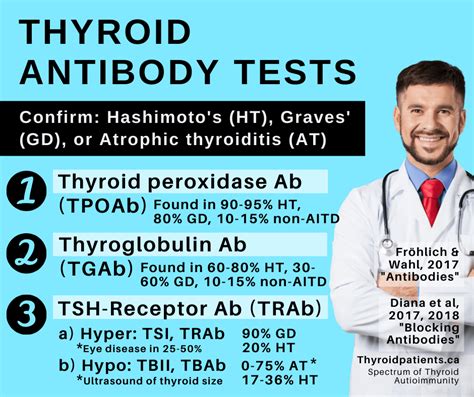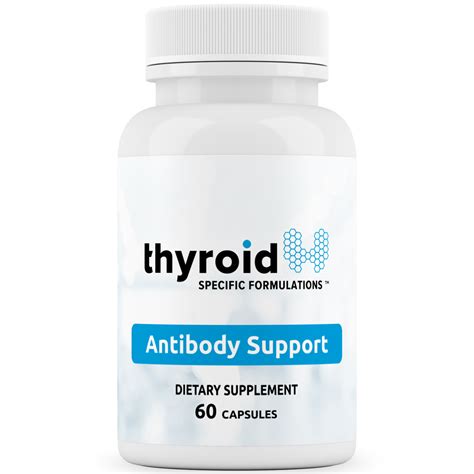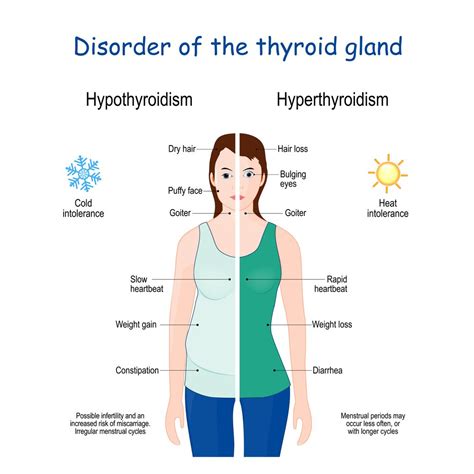Intro
Discover the Thyroid Antibodies Test, diagnosing autoimmune thyroiditis, Hashimotos, and Graves disease with TPO, TgAb, and TRAb markers, for accurate thyroid function assessment.
The thyroid gland plays a crucial role in regulating various bodily functions, including metabolism, energy production, and growth. However, in some cases, the immune system can mistakenly attack the thyroid gland, leading to the production of thyroid antibodies. These antibodies can cause inflammation and damage to the thyroid gland, resulting in thyroid disorders such as Hashimoto's thyroiditis or Graves' disease. In this article, we will delve into the world of thyroid antibodies tests, exploring their importance, benefits, and what they entail.
Thyroid antibodies tests are a vital diagnostic tool used to detect the presence of antibodies against the thyroid gland. These tests can help diagnose autoimmune thyroid disorders, monitor disease progression, and guide treatment decisions. The presence of thyroid antibodies can indicate an underlying autoimmune process, which can have significant implications for patient management and treatment. Moreover, thyroid antibodies tests can also help identify individuals at risk of developing thyroid disorders, allowing for early intervention and prevention.
The importance of thyroid antibodies tests cannot be overstated, as they provide valuable insights into the underlying mechanisms of thyroid disorders. By detecting the presence of thyroid antibodies, healthcare providers can develop targeted treatment strategies, improve patient outcomes, and reduce the risk of complications. Furthermore, thyroid antibodies tests can also help monitor the effectiveness of treatment, allowing for adjustments to be made as needed. With the increasing prevalence of thyroid disorders, the demand for accurate and reliable diagnostic tests has never been greater.
What are Thyroid Antibodies?

Types of Thyroid Antibodies Tests
There are several types of thyroid antibodies tests available, each with its own specific advantages and disadvantages. The most common types of thyroid antibodies tests include: * Thyroid peroxidase antibody (TPOAb) test: This test measures the levels of TPO antibodies in the blood. * Thyroglobulin antibody (TgAb) test: This test measures the levels of Tg antibodies in the blood. * Thyroid-stimulating immunoglobulin (TSI) test: This test measures the levels of TSI, a type of antibody that stimulates the thyroid gland to produce excess thyroid hormones. * Thyrotropin receptor antibody (TRAb) test: This test measures the levels of TRAb, a type of antibody that binds to the thyrotropin receptor on the surface of thyroid cells.How are Thyroid Antibodies Tests Performed?

Interpretation of Thyroid Antibodies Test Results
The interpretation of thyroid antibodies test results can be complex and requires careful consideration of various factors, including the type of test used, the level of thyroid antibodies present, and the patient's clinical symptoms. In general, a positive test result indicates the presence of thyroid antibodies, while a negative test result suggests that thyroid antibodies are not present. However, it is essential to note that a positive test result does not necessarily mean that the patient has a thyroid disorder, as thyroid antibodies can be present in healthy individuals.Benefits of Thyroid Antibodies Tests

Limitations of Thyroid Antibodies Tests
While thyroid antibodies tests are a valuable diagnostic tool, they also have several limitations, including: * False-positive results: Thyroid antibodies tests can produce false-positive results, which can lead to unnecessary treatment and anxiety. * False-negative results: Thyroid antibodies tests can also produce false-negative results, which can lead to delayed diagnosis and treatment. * Variability in test results: Thyroid antibodies test results can vary depending on the type of test used, the laboratory, and the individual's immune status.Thyroid Disorders Associated with Thyroid Antibodies

Treatment Options for Thyroid Disorders
Treatment options for thyroid disorders depend on the underlying cause and severity of the condition. Common treatment options include: * Thyroid hormone replacement therapy: This involves taking synthetic thyroid hormones to replace the missing hormones. * Anti-thyroid medications: These medications are used to reduce the production of thyroid hormones in individuals with hyperthyroidism. * Immunomodulatory medications: These medications are used to suppress the immune system and reduce inflammation in individuals with autoimmune thyroid disorders.Conclusion and Future Directions

What are thyroid antibodies?
+Thyroid antibodies are proteins produced by the immune system that mistakenly target the thyroid gland.
What are the benefits of thyroid antibodies tests?
+Thyroid antibodies tests can help diagnose autoimmune thyroid disorders, monitor disease progression, and guide treatment decisions.
What are the limitations of thyroid antibodies tests?
+Thyroid antibodies tests can produce false-positive and false-negative results, and test results can vary depending on the type of test used and the laboratory.
We hope this article has provided you with a comprehensive understanding of thyroid antibodies tests and their importance in diagnosing and managing thyroid disorders. If you have any questions or comments, please feel free to share them below. Additionally, if you found this article informative, please share it with others who may benefit from this information. Together, we can work towards improving our understanding of thyroid disorders and developing more effective treatment strategies.
